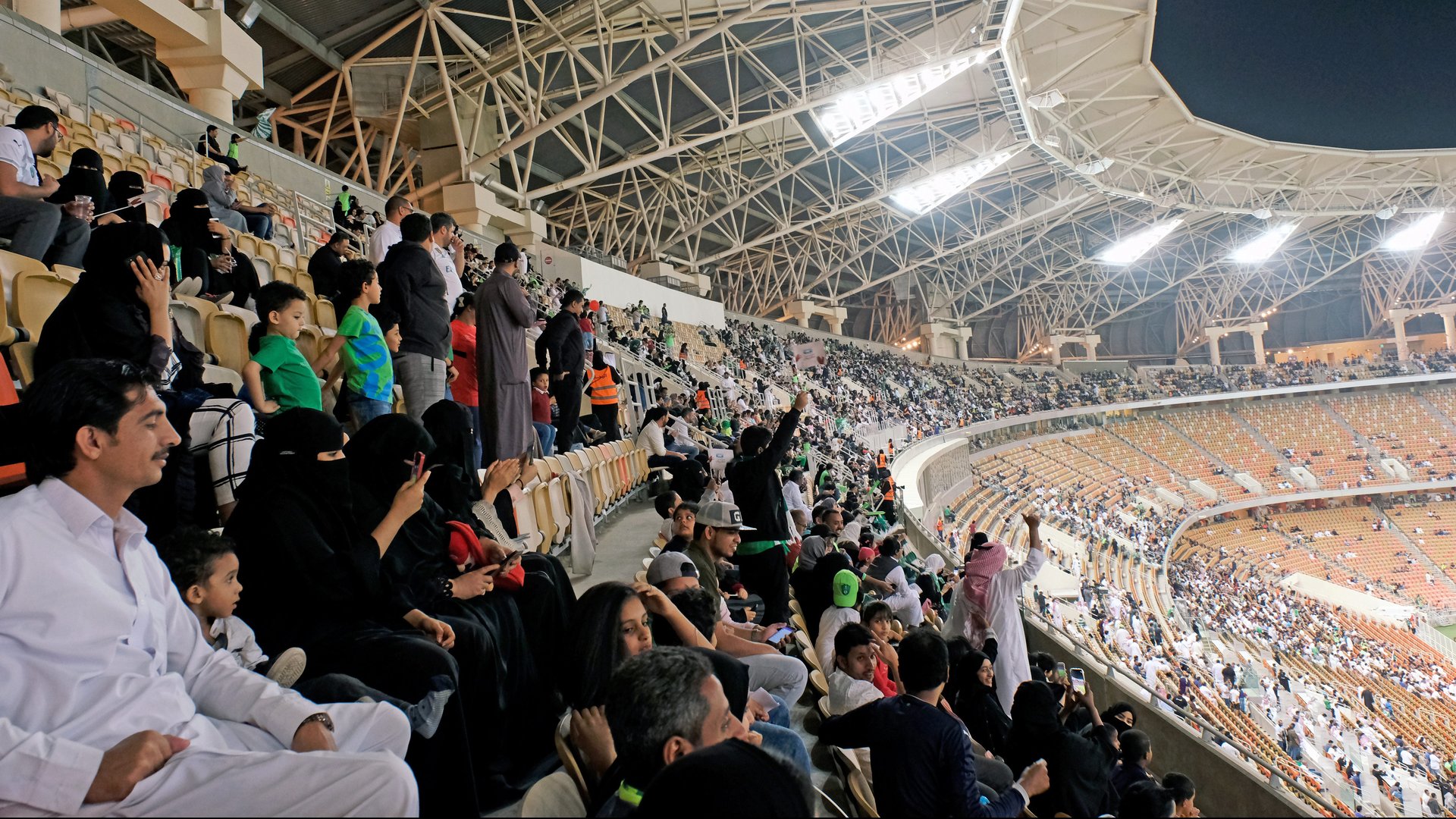All the exceedingly normal things that women in Saudi Arabia are allowed to do now
Saudi Arabia is undergoing unprecedented change.
ByAamna Mohdin and Aamna Mohdin


Saudi Arabia is undergoing unprecedented change.
The ultra-conservative kingdom is keen to shake off its reputation as a country with an appalling record on women’s rights. Two years ago, Saudi Arabia announced it would be implementing a series of sweeping social and economic reforms known as Vision 2030, spearheaded by 32-year-old crown prince Mohammed bin Salman.
This week, the prince said women should not be forced to wear the abaya—loose-fitting, full-length robes—so long as they continue to dress modestly. This followed a senior Saudi cleric saying on TV last month that women should have a choice about what they wear.
In the past few months, women in the kingdom have also been allowed to:
- Attend soccer matches. In January, the Al-Ahli v Al-Batin soccer match at Jeddah stadium made history by opening its doors to women. Women had to enter through designated turnstiles for women and families and had to sit in designated family stands.
- Start businesses without the permission of a male guardian. In the past, women would have not only required a guardian’s approval, but had to also visit a notary to document it.
- Retain custody of children after divorce without filing a lawsuit. Previously, Saudi women had to petition courts to win custody of their children, in cases that sometimes dragged on for years. While custody still goes to the father by default, Saudi women can now simply apply for it.
- Join the military. While women aren’t able to apply for combat roles, they can now work in security. Applicants must be Saudi citizens, aged between 25 and 35, and have a high-school diploma.
- Learn how to drive. Last year, the kingdom lifted the controversial law that denied women the right to drive. When the website for Saudi Arabia’s first driving school for women opened for online registration, it reportedly attracted more than 165,000 applicants (paywall) in just three days.